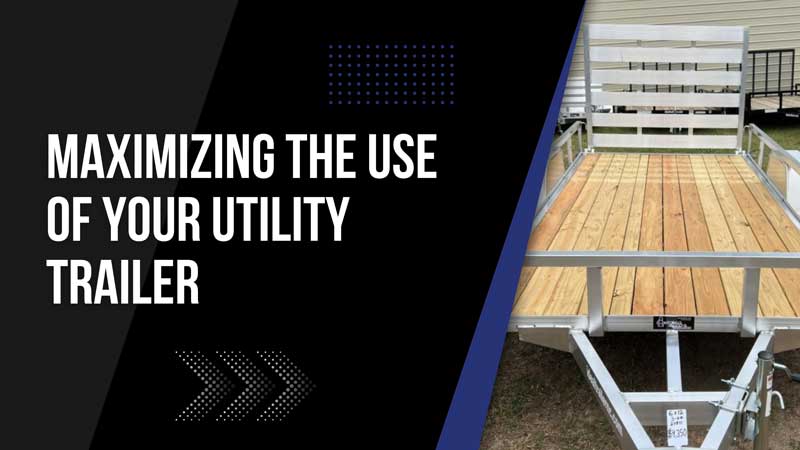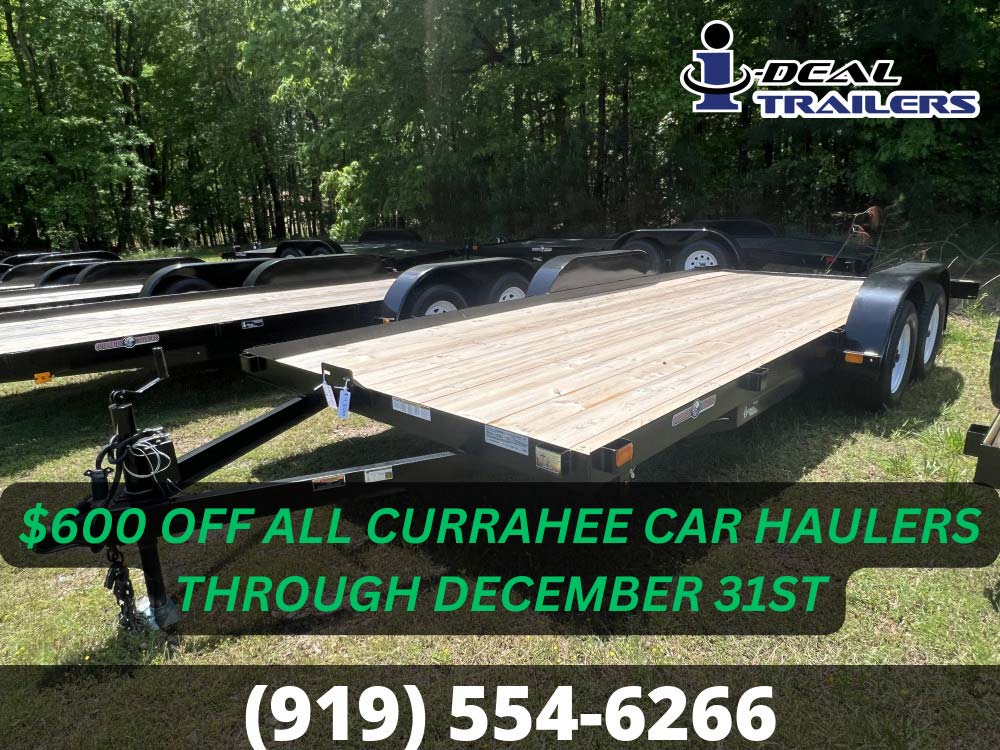
Utility trailers are incredibly versatile, making them a popular choice for both personal and professional use. Designed to handle a wide range of cargo and materials, they enable you to transport everything from landscaping equipment and construction materials to household items or recreational gear. However, to ensure safe and secure transportation, it's essential to learn the proper techniques for effectively loading and securing cargo on your utility trailer. In this comprehensive guide, we'll outline essential tips and guidelines to help you maximize the use of your utility trailer and keep your cargo safe during transit.
The key to effectively using a utility trailer is understanding the principles of load distribution, weight limits, and proper cargo-securing methods. When properly loaded and secured, utility trailers can safely transport cargo over various terrains and distances with minimal issues and potential damage. Conversely, incorrectly loaded or secured cargo can lead to accidents, damage to your cargo, and reduced fuel efficiency. Whether you're a seasoned utility trailer user or new to the world of towing, this guide will provide valuable information and practical tips to help you optimize the use of your utility trailer, ensuring a smooth and stress-free transport experience.
From determining weight capacities and adhering to relevant regulations to choosing appropriate tie-down equipment and securing cargo correctly, we'll cover the essential aspects of using a utility trailer for transporting various cargo types effectively. By the end of this guide, you'll be equipped with the knowledge and confidence to expertly load and secure cargo on your utility trailer, ensuring safe and efficient transportation to your desired destination.
Understanding Weight Capacities and Load Distribution
1. Gross Vehicle Weight Rating (GVWR)
Before loading any cargo, familiarize yourself with your utility trailer's Gross Vehicle Weight Rating (GVWR), which indicates the maximum weight the trailer can handle, including the weight of the trailer itself. Exceeding the GVWR could lead to unsafe towing conditions, damage to your trailer, and potential accidents.
2. Payload Capacity
The payload capacity is the maximum weight of cargo that your utility trailer can safely carry. To calculate the payload capacity, subtract the weight of the empty trailer from the GVWR. Ensure you do not exceed the payload capacity when loading your trailer.
3. Axle Weight Rating (GAWR)
Axle Weight Rating (GAWR) is the maximum weight that each axle can support. Ensure that the weight of your cargo does not exceed the GAWR of each axle, as overloading can lead to axle damage or failure.
4. Proper Load Distribution
Distribute the weight of your cargo evenly across the trailer bed for increased stability and safety. Ideally, 60% of the cargo should be in front of the trailer's axle and 40% behind, with the majority of the weight directly over the axle.
Loading and Securing Cargo on Utility Trailers
1. Choose the Right Tie-Down Equipment
Select the appropriate tie-down equipment based on your cargo's weight and size, such as ratchet straps, bungee cords, chains, or rope. Check the tie-down equipment's weight capacity to ensure it can securely hold your cargo during transport.
2. Secure Cargo with Anchors
Most utility trailers come equipped with anchor points for security. Use these points to secure your tie-down equipment and ensure that your cargo remains in place during transit. When possible, use multiple anchor points to secure your cargo from various angles for added stability.
3. Use Padding and Protective Materials
To protect your cargo from damage and movement during transport, use padding and protective materials such as blankets, tarps, or foam padding. These materials will help cushion your cargo against vibrations, shifting, or contact with other items.
4. Regularly Inspect Your Loaded Trailer
Once you have properly loaded and secured your cargo, inspect your trailer to ensure that everything is in place and secure. Check your tie-down equipment for signs of wear or damage and replace or adjust as needed. Regularly inspect your loaded trailer throughout your journey to ensure your cargo remains secure and safe.
Essential Tips and Guidelines for Safe Utility Trailer Use
1. Abide by Local Regulations
Research and adhere to local regulations regarding utility trailer use, including weight limits, towing speeds, and required safety equipment such as lights and reflective materials.
2. Perform Pre-Trip Inspections
Before embarking on your journey, perform a thorough inspection of your utility trailer, checking for adequate tire pressure, properly functioning lights, and secure hitch connections.
3. Adjust Your Driving Habits
When towing a utility trailer, adjust your driving habits for increased safety. Allow for additional stopping distance, reduce your speed, and use your mirrors frequently to monitor your trailer and surrounding traffic.
Conclusion
Effectively using a utility trailer for safe and secure transportation requires a thorough understanding of load distribution, weight capacities, and proper cargo-securing methods. By following the practical tips and guidelines outlined in this guide, you can confidently and safely transport a wide range of cargo on your utility trailer. Combined with regular maintenance and adherence to local regulations, you'll enjoy a smooth and stress-free transport experience for work or personal use.
At I-Deal Trailers, our team of experts is here to help you select the perfect utility trailer for your needs and provide guidance on proper loading and securing techniques. Contact us today to learn more about our selection of high-quality utility trailers online and gain expert advice on how to maximize their use for safe and efficient transportation. With the right utility trailer and proper usage techniques, you'll enjoy years of reliable service and versatile cargo transportation solutions.
About Us
Are you looking for a reliable company to buy a trailer for your next project? Look no further than I-Deal Trailers. We are a family-owned and managed business based in Wake Forest, NC. And we have everything you need in terms of trailers, whether it is a utility trailer, a dump trailer, or even a gooseneck trailer. We’ve got you covered.We also help provide financing options to our clients. You can reach us at (919) 554-6266 or fill out our contact form to learn more.

